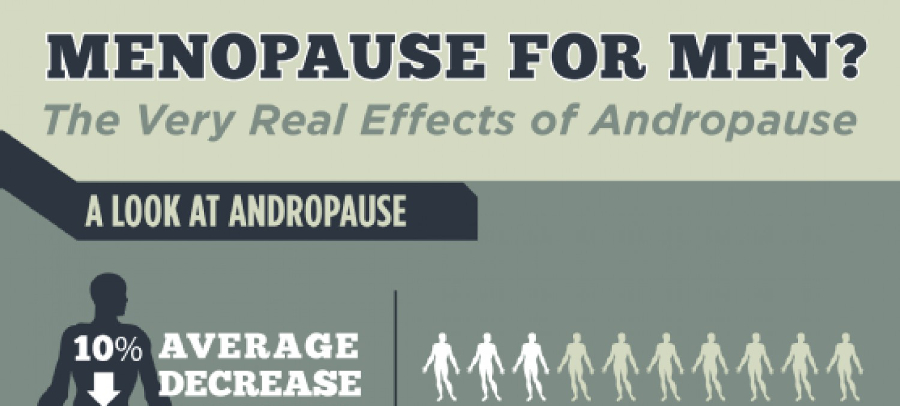
The expression "andropause" is supposed to describe the problem of males that have a hormonal level decline after middle-age.
Male Menopause is a topic of conflict among scientific researchers. When it comes to ladies, menopause is associated with the termination of a bodily process - specifically, when the month-to-month menstrual cycle ceases. Additionally, a crucial decrease in the hormone output in females occurs in addition to menopause. Because of these reasons, doctors are questioning whether "manopause" really exists.
When it comes to guys in their middle and senior years, smaller levels of testosterone are being secreted by the testes. This is thought to be the underlying reasons behind the appearance of signs of "manopause".
Males with andropause normally experience irritation, sleep disruption, declining sex drive, sweating, stress and anxiety, sadness, memory issues, and also ED.
For the most part, erectile dysfunction might be triggered by various other issues - but, testosterone shortage could be one explanation.
It is necessary that males that struggle with symptoms related to low production of testosterone go through clinical analysis for blood screening to examine testosterone levels.
Various other reasons for having diminishing testosterone output consist of a testicular dysfunction or a possible inherited defect.
As a therapy, HRT is being advised for males with low amounts of testosterone as well as the symptoms that are associated with it.
Hormone replacement therapy could not be applicable to older males that seek therapy for their erectile dysfunction unless they actually have extremely marginal levels of testosterone. As for more youthful guys with well-known hormonal deficiency, it has actually been proven that small dosages of testosterone could boost interest in sex.
Testosterone replacement therapy, which is additionally known as HRT, intends to decrease the symptoms brought about by male menopause. This technique is a long-lasting treatment, given that testosterone shortage is typically a long-term problem.
Testosterone replacement therapy is usually given as a sublingual prescription, implants, or shots.
The injection of testosterone is typically done as soon as every two weeks.
The oral medications are particularly recommended to those who can not tolerate shots or implants.
The testosterone implants, which are being put under the skin of the butt cheek or abdomen benefit a period of months. The implant functions by releasing testosterone straight into the blood stream.
HRT, nonetheless, includes potential side effects and threats.
With low testosterone output, the prostate gland can shrink. HRT could not recover a physically atrophied prostate gland since it does not have influence in the levels of prostate-specific antigen.
Hormone replacement therapy may not be a root cause of raised threat of prostate cancer cells for those who have naturally higher testosterone output in the exact same age bracket.
On the flip-side, the safety and security of hormonal replacement as well as it's possible impacts on the prostate gland, mental healthfunctioning, and cardiovascular system still need to undertake correct investigation. Furthermore, there is also a need to evaluate the possible benefits of androgen treatment on the bones as well as muscular tissues.
Androgen treatment is claimed to boost the danger of heart problems, although investigation on this subject doubt. It is a recognized reality, nevertheless, that those with reduced testosterone output have been seen amongst heart attack targets. This opens the opportunity that hormone replacement therapy could help protect against heart diseases.
Older men undiagnosed of prostate gland cancer must also take caution when being used with androgens.
Sleep apnea, or the cessation of breathing during sleep, is also thought about as an uncommon risk associated with hormone therapy.